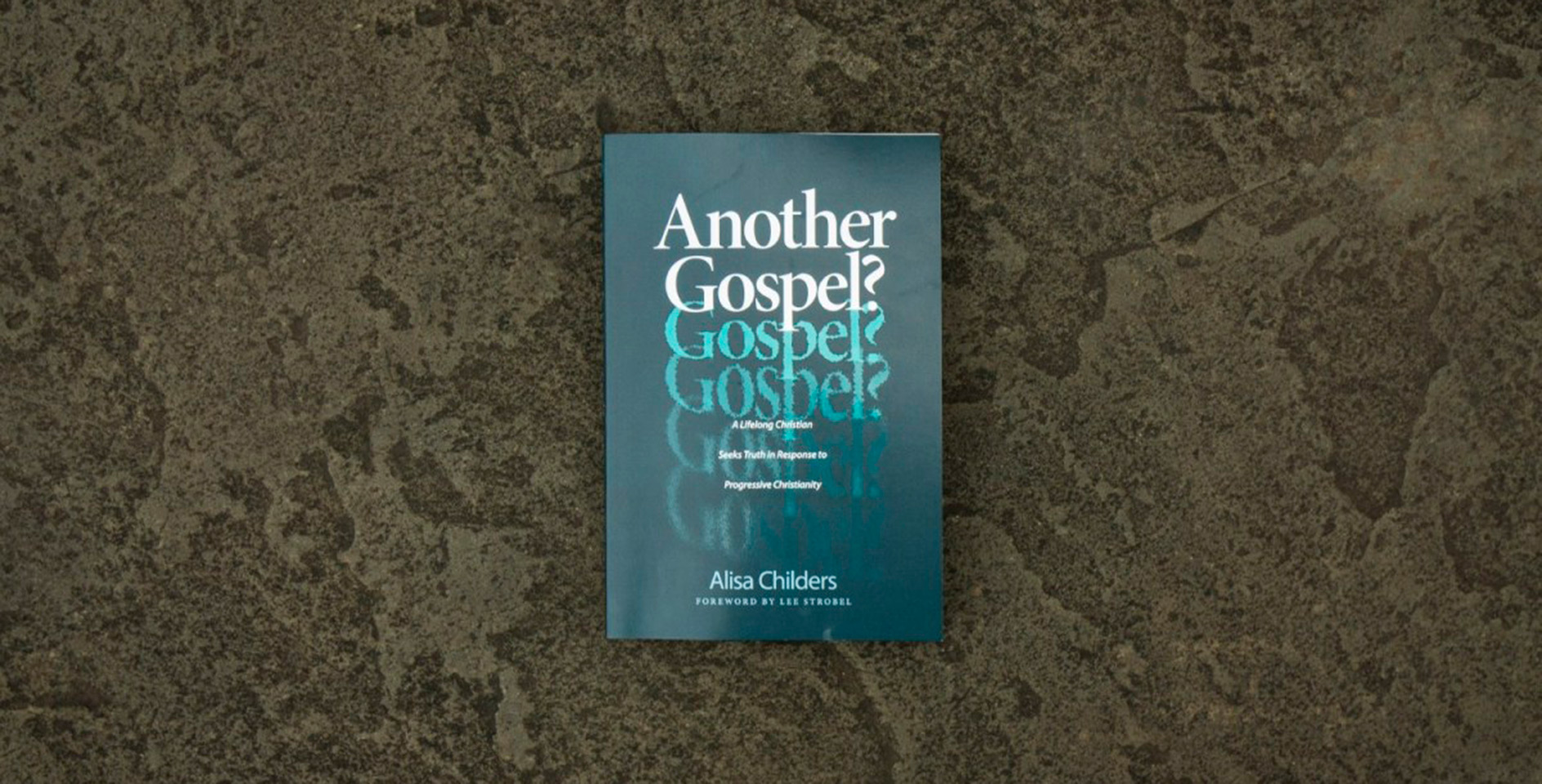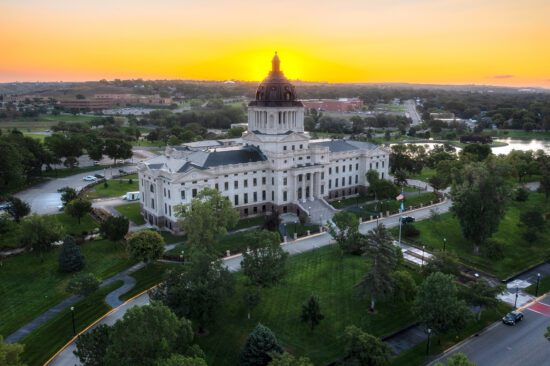Editor’s Note: This interview is part of a series engaging the authors of new or notable books. Because discipleship and spiritual formation go hand in hand, the goal of this series is to introduce you to beneficial and enriching works in order to better equip you to love God with your mind as well as your heart and strength. Find the entire series here.
What would you say to someone on the verge of walking away from the faith? What about someone questioning essential truths of Christianity? In Another Gospel?, Alisa Childers offers incredible help to those struggling with these and other questions about faith and the Christian religion. In the book, she takes on the movement known as progressive Christianity, considering its claims and where it falls short of historic Christian doctrine. More than critiquing this progressive strain of Protestantism, she also charts the way forward for Christians fighting against unbelief and helps to (re)anchor their faith on the solid ground of the gospel. We explored more of these ideas in our interview with Childers below.
Your book engages with what you call “progressive Christianity,” which is something we often hear about in political or social contexts. What do you mean by progressive Christianity? And how does it differ from historic Christian faith?
Progressive Christianity is a movement of people who identify as Christian, but have adopted theological liberalism, mixed with a bit of postmodern relativism. The unique characteristic of this particular brand of liberalism is that it is springing up and out of the evangelical church.
What are common issues that drive people away from evangelical Christianity and toward progressive Christianity? Are there valid critiques that progressive Christianity raises that the church needs to hear?
Because progressive Christians are largely ex-Evangelicals who are reacting against their Christian upbringings, there are several factors that could lead to their deconstruction. For example, in listening to different deconstruction stories, we learn that many progressive Christians grew up in hyper-legalistic or even abusive church settings. Others grew up in a “Christian bubble,” in which they weren’t taught the difference between essential beliefs, and nonessential beliefs.
Still, others began to see the Bible as morally dubious. In her book, Inspired, the late Rachel Held Evans, a key figure in the progressive movement, noted that when she was a little girl, the Bible was a magic book. As she grew older, she began to notice the true nature of the Noah’s Ark story, and the Canaanite conquest. This caused her to doubt the moral character of the God who was supposed to be the hero of the story. This led her to begin interpreting the Bible through the lens of liberation theology, feminism, and historical criticism.
What would you say to someone on the verge of walking away from the faith?
And others, who grew up with a “name it and claim it” type of faith, didn’t have a theological category for suffering, and were left in a dark night of the soul following a trial or figuring out how to cope with unanswered prayers. When progressive Christianity first began to materialize through the Emergent church in the late ’90s and early 2000s, they brought in valid critiques of evangelicalism such as hyper-fundamentalism, abuse, and a lack of providing a safe place to bring doubts and questions. However, the progressive Christian movement ended up throwing out the gospel as well.
The progressive approach to faith that you profile in your book might appeal to certain Christians who are struggling with their beliefs. What are some of the unforeseen pitfalls of this expression of faith? Why should we question the credibility of progressive Christianity?
The progressive movement is extremely appealing to those who are unsatisfied or disgruntled by their evangelical upbringing. Particularly for those who are asking difficult questions like “Why God would allow suffering?”, or, “How we know the BIble is the Word of God?”, it can be appealing because they are given a lot of space to ask these questions, without expectation of conformity. It can also appeal to Christians who are pressured by culture to capitulate on issues like abortion and sexual ethics. Because it is a movement largely driven by personal conscience, there is no pressure to side with the Bible on these issues. I think we should question the credibility of the movement because it is a belief system that holds feelings and personal preference as the highest authority, even over biblical mandate.
Do you see a difference between unbelief and doubt? How do you think this distinction can help Christians understand the questions they have about God and the Bible?
I think there is a difference between doubt and unbelief. Sometimes, people think the opposite of faith is doubt, but the actual opposite of faith is unbelief. In fact, one can only doubt something they already believe. When we look at it from that angle, we see that doubt can be a very normal and healthy part of spiritual growth. However, progressive Christianity has created a culture of doubt, where agnosticism largely becomes the highest goal.
Are there common questions or theological issues that tend to lead people toward a “deconstruction” of their faith? What is some practical wisdom for Christians feeling the first impulses toward the “spiritual labor” you describe in the book?
There are several different factors that can lead someone into deconstruction. When I’ve listened to deconstruction stories, there is often a mix of apologetics questions like, “Why does God allow evil and suffering?”, and, “Is the Bible really God’s reliable Word?”, and, “Has science disproved Christianity?” But when I listen closely, there is almost always an undercurrent of doubt regarding the biblical teaching on morality, and specifically, sexual ethics. I think in many cases, Christians feel pressured to align themselves with the cultural narrative on sexuality, which I have found to be a core tenet of progressive Christianity with advocacy for same-sex marriage and relationships being a main theme.
My encouragement to Christians who are experiencing impulses toward this type of spiritual labor is to not give up. Often, it seems people begin deconstructing, but they don’t press through to find truth. Often, they’ve already decided they don’t believe what God says about morality or theology and look for reasons to change their minds. But if we keep our hearts set on truth, we will keep digging until we find it.
You outline in your book how progressive Christianity often redefines or alters core tenets of historic Christianity. Can you give an example of this? Why is this so harmful?
One example of progressive Christianity altering a core tenet of the faith has to do with the atonement. Substitutionary atonement, and specifically, penal substitutionary atonement is referred to as “cosmic child abuse.” Progressive Christians don’t believe Jesus died on the cross for our sins as a sacrifice. Often, the atonement is described as God allowing the cross in order to submit to the bloodlust of humans, and to show how forgiveness works. This is harmful because it removes any mechanism for real atonement—to be reconciled to a holy God. But in progressive Christianity, humans aren’t separated from God in the first place, so there is no need for reconciliation.
Are there cultural narratives or beliefs unique to our society that drive people toward adding or subtracting to the gospel? What are some ways we are guilty of the “chronological snobbery” that C.S. Lewis cautioned about?
The shift on sexuality and gender norms is a deeply influential cultural narrative leading people to redefine, add to, or subtract from the gospel. There is a push to accommodate the gospel to include the acceptance of premarital sex, homosexuality, and transgenderism. The cultural acceptance of critical theory and intersectionality, which divides people into groups of oppressed and oppressor has paved the way for these changes to be made.
Another cultural narrative that is influencing Christians to add or subtract to the gospel is the broader push for valuing the self above all else. Messages like “just follow your heart” and “you are perfect just as you are” have led a large swath of Christians to reject the doctrine of original sin, trading it instead for “original blessing,” or “original goodness,” which teaches that humans are not inherently sinful, and if they are, that sin doesn’t separate them from God. If they feel separated from God, it is simply their shame or lack of realizing their belovedness that makes them feel the separation.
You encountered progressive Christianity through the emergent church, a previously popular movement that has now faded. Where do most people come into contact with progressive Christianity today?
The Emergent church planted the seeds for progressive Christianity. Largely speaking, it is the same movement, with the same philosophy and theological conclusions. When it was perceived that the Emergent church faded out, that is because Emergents were largely pushed out of the evangelical church, but then they grew and festered online on social media platforms, internet chat rooms, and blog sites. With fresh faces and voices, the movement continued to grow in numbers and influence, finding themselves published on major Christian publishing houses and being invited to evangelical churches and conferences. With this fresh crop of voices, but not excluding the original Emergent voices, progressive Christianity successfully infiltrated the evangelical church in ways the Emergent church was unable to accomplish.
What have you personally gained from the reconstruction of your faith? How has that journey strengthened your relationship with Jesus and conviction in the historic Christian faith?
My journey to discover historic Christianity has been a two-fold blessing. On one hand, my experience at the progressive church left a wound. Like Jacob, I walk with a limp, but that limp has humbled me and made me even more dependent on the Lord. That is, in and of itself, a deeper blessing than I could have known to ask for. Second, the Lord has seen fit to bless me with an opportunity to help others who are encountering and interacting with progressive Christianity and help equip them to answer the claims and minister to their friends who are confused by it. Ultimately, my faith in God is stronger today than ever. I have learned to trust in what I know about God and not depend on my feelings.
Encountering unasked questions created a faith crisis for you because your faith was, as you described, “intellectually weak and untested.” This is an experience shared by many Christians. How would you counsel believers who encounter questions they don’t have immediate answers for? How can the church better equip people to handle doubt?
My main advice for Christians encountering new questions they don’t have answers for is to begin with knowing that there is nothing new under the sun. This may be a new question to you, but it’s not a new question for the church. We have 2,000 years of a robust intellectual tradition that has been interacting with these types of questions. Keep digging. Don’t give up just because a clever skeptic spins something in such a way that causes confusion. It takes work, but as I say in the book, the hungry doubter will do the work.
I think churches can help by providing apologetics and theological training for young people, starting in elementary school. Our kids are encountering skeptical claims about what they believe at such tender ages. We have to expose them to skepticism in the safety of our homes and churches, teaching them how to think critically and navigate these things before they go out into the world. Also, churches need to learn how to diagnose doubt. Not every doubt is intellectual. An apologetics class won’t necessarily help someone who is doubting because of cultural pressure to capitulate on sexuality.
Seeking to understand the question behind the question can go a long way to help prepare Christians to stand strong in this increasingly more post-Christian culture.
You can order Another Gospel? here.











